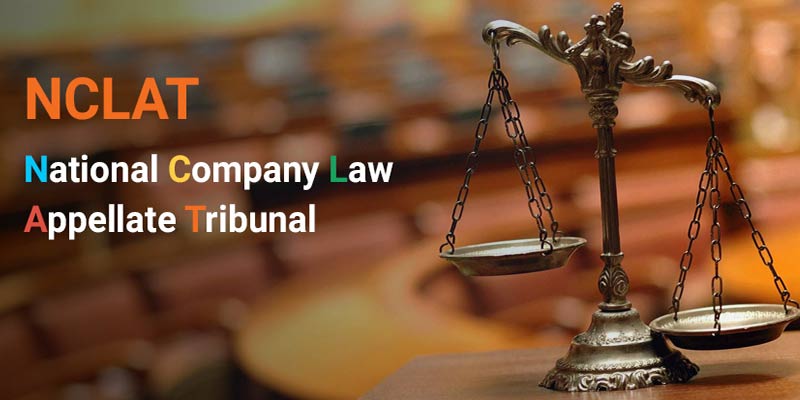- India
- May 06
What is National Company Law Tribunal (NCLT)?
• The Insolvency Bankruptcy Board of India (IBBI) declared 2023-24 as a landmark year, with the National Company Law Tribunal (NCLT) achieving a significant 43 per cent increase in resolutions, jumping from 189 cases last year to 270 this year.
• The IBBI is expected to submit a report to the government over the next 2-3 months for including mediation in the Insolvency and Bankruptcy Code (IBC).
• The regulator is also working on prepackaged insolvency for large corporate cases, which is only allowed in MSME cases as of now.
What is National Company Law Tribunal (NCLT)?
• The National Company Law Tribunal (NCLT) is a quasi-judicial body that adjudicates issues relating to Indian companies.
• The NCLT was established under the Companies Act, 2013, and was constituted on June 1, 2016 by the Union government.
• It was based on the recommendation of the Justice Eradi Committee on law relating to insolvency and winding up of companies. All proceedings under the Companies Act, including proceedings relating to arbitration, compromise, arrangements and reconstruction and winding up of companies, shall be disposed of by the NCLT.
• It is tasked with the key job of helping recover corporate loans.
• The NCLT is the adjudicating authority for insolvency resolution process of companies and limited liability partnerships under the Insolvency and Bankruptcy Code, 2016.
• Decisions of the NCLT may be appealed at the National Company Law Appellate Tribunal (NCLAT). The NCLAT decisions can be challenged at the Supreme Court on a point of law.
• NCLT, besides a principal bench at New Delhi, has 15 other benches — Ahmedabad, Allahabad, Amravati, Bengaluru, Chandigarh, Chennai, Cuttack, Guwahati, Hyderabad, Kolkata, Mumbai, Jaipur, Kochi, Amravati, and Indore.
What is NCLAT?
• The National Company Law Appellate Tribunal (NCLAT) was constituted under Section 410 of the Companies Act, 2013, for hearing appeals against the orders of NCLT.
• It was established on June 1, 2016.
• It has two benches — one principal bench at New Delhi and the other in Chennai
• The NCLAT is the appellate tribunal for hearing appeals against the orders passed by NCLT under Section 61 of the Insolvency and Bankruptcy Code, 2016 (IBC), with effect from December 1, 2016.
• The NCLAT is the appellate tribunal for hearing appeals against the orders passed by Insolvency and Bankruptcy Board of India under Section 202 and Section 211 of IBC.
• It is the appellate tribunal to hear and dispose of appeals against any direction issued or decision made or order passed by the Competition Commission of India - as per the amendment brought to Section 410 of the Companies Act, 2013, by Section 172 of the Finance Act, 2017, with effect from May 26, 2017.
• It is also the appellate tribunal to hear and dispose of appeals against the orders of the National Financial Reporting Authority.
Insolvency and Bankruptcy Board of India
• Insolvency and Bankruptcy Board of India (IBBI), established on October 1, 2016 in accordance with the Insolvency and Bankruptcy Code, 2016, is a body corporate having perpetual succession.
• Insolvency and Bankruptcy Code has provided a framework for dignified exit of stressed assets.
• Insolvency and Bankruptcy Code adopts a resolution-oriented approach, outcomes of which have been evaluated based on time taken, preservation of asset value, and recovery amounts for the creditors.
IBBI is a key pillar of the ecosystem responsible for implementation of the Insolvency and Bankruptcy Code that consolidates and amends the laws relating to:
i) Reorganisation and insolvency resolution of corporate persons.
ii) Partnership firms and individuals in a time bound manner for maximisation of the value of assets of such persons.
iii) Promote entrepreneurship.
iv) Availability of credit and balance the interests of all the stakeholders.
• It has regulatory oversight over the insolvency professionals, insolvency professional agencies, insolvency professional entities and information utilities.
• It writes and enforces rules for processes, namely, corporate insolvency resolution, corporate liquidation, individual insolvency resolution and individual bankruptcy under the Insolvency and Bankruptcy Code.
Section 196 of the Insolvency and Bankruptcy Code enumerates the functions of the Board which can be broadly grouped into three sets:
i) Quasi-legislative functions: The Board makes regulations to regulate service providers and processes.
ii) Executive functions: The Board registers and monitors service providers for insolvency process and takes measures for professional development through education, examination and training.
iii) Quasi-judicial functions: The Board adjudicates upon contraventions by service providers to ensure their orderly functioning.
Manorama Yearbook app is now available on Google Play Store and iOS App Store


